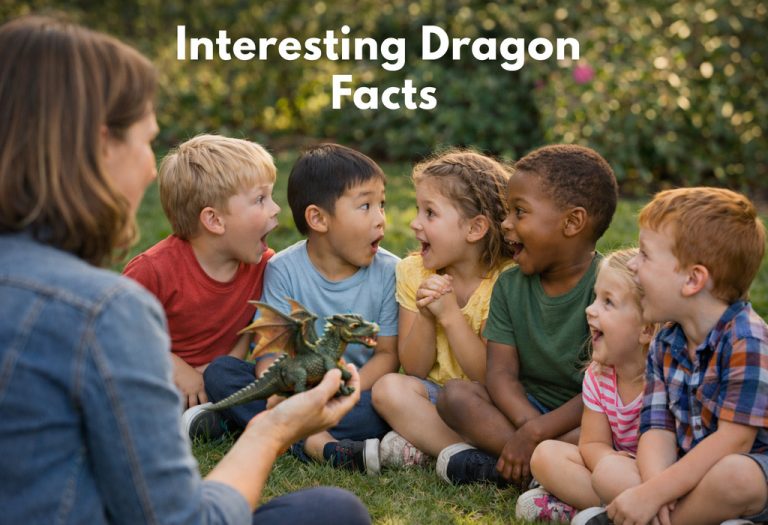Best Vitamins and Minerals for Kids – Benefits, Sources, & Daily Needs
Vitamins and minerals are essential for growing children, as they provide all the necessary nutrients required to support a child’s activities and development throughout their growth. The human body is not capable of manufacturing the vitamins necessary for healthy development, which is why they must be supplemented via a healthy diet. There are various vitamin- and mineral-rich foods readily available in the market, such as milk and dairy products, meat, eggs, strawberries, mangoes, broccoli, tomatoes, carrots, and green leafy vegetables, among others. These can be cooked into delicious meals for fussy eaters, providing the required vitamins and minerals for children. We’ll discuss the best vitamins for children’s growth to support their early growth.
Importance of Vitamins for Kids
Vitamins are essential for children from a young age. They support growth, strengthen bones and teeth, boost immunity, and help in overall physical and cognitive development. Let’s take a look at the various types of vitamins that support our daily lives.
Vitamin A
Vitamin A is important for toddlers as it helps in the development of cells and tissues in the body (1).
1. Benefits
- Strengthens eyesight
- Improves skin, nails and hair
- Helps in the growth and development of bones
- Strengthens the immune system and fights infections
2. Daily Amount
- 1 to 3 years old – 300 micrograms
- 4 years and above – 400 micrograms
3. Sources
Milk, cheese, eggs, oranges, and veggies such as carrots and sweet potatoes are rich in Vitamin A.
4. Deficiency
Deficiency of vitamin A can lead to a medical condition called xerophthalmia. Dry skin is one of the symptoms of vitamin A deficiency, while it also increases the risk of diseases and death from severe infections.
Vitamin B
The family of B Vitamins are helpful in improving metabolism and the production of energy in the body.
1. Benefits (2)
- Vitamin B1 helps in releasing energy from food and the proper functioning of the nervous system.
- Vitamin B2 helps in the breakdown of fats, proteins and carbohydrates.
- Vitamin B3 helps in the absorption of food and promotes growth.
- Vitamin B6 helps in the breakdown of proteins into energy, supports brain function, and also aids in RBC production.
2. Sources
Milk, meat, cheese, yeast, nuts, eggs, fish, beans, wholemeal breads, whole grain foods and cereals are some Vitamin B-rich foods. To obtain the benefits of vitamin B, all types of B vitamins must function in tandem with each other, and it is essential to obtain all kinds of B vitamins in proper amounts.
3. Deficiency
A diet deficient in various types of B vitamins can impair the nervous system’s function in both children and adults. It affects their ability to learn, causing poor memory, moodiness, and confusion. Skin conditions such as dry skin, oily skin, and acne can be signs of a vitamin B deficiency.
Vitamin C
Vitamin C is essential for healthy muscle and tissue growth, as well as improving the skin. Since our bodies cannot store vitamin C for a very long time, it is important for vitamin C to be a regular part of the diet (3).
1. Benefits
- Helps in building collagen
- Fights against infections
- Absorbs iron from food
- Keeps teeth, bones and gums healthy
2. Daily Amount
- 1 to 3 years old – 15 milligrams
- 4 years and above – 25 milligrams
3. Sources
Orange, kiwi, strawberry, broccoli, tomatoes, peppers and other citrus foods are rich sources of Vitamin C.
4. Deficiency
Deficiency of vitamin C can cause scurvy, which leads to the formation of brown spots on the skin, spongy gums, and bleeding from all mucous membranes.
Vitamin D
Vitamin D aids in regulating the immune system, insulin production, and cell growth in the body.
1. Benefits
- Helps in the absorption of calcium
- Keeps bones and teeth strong and healthy
2. Daily Amount
- 1 to 3 years old – 10 micrograms
- 4 years and above – 15 micrograms
3. Sources
Sunlight, oily fish, egg yolks and butter are good sources of Vitamin D.
4. Deficiency
Deficiency of vitamin D leads to rickets in children, which weakens the bones and also causes diseases related to bones.
Vitamin E
Vitamin E helps fight against germs and ensures free blood flow through the vessels.
1. Benefits
- Boosts the immune system
- Helps in the development of eyes and healthy skin
2. Daily Amount
- 1 to 3 years old – 6 milligrams
- 4 years and above – 7 milligrams
3. Sources
Sunflower and canola oils, margarine and nuts are some Vitamin E-rich foods.
4. Deficiency
Severe deficiency of Vitamin E in toddlers can cause chronic liver disease, slow growth, mild anaemia, muscle weakness, dryness of skin and hair, drooping upper eyelid, and leg cramps.
Vitamin K
Vitamin K is an important nutrient that supports proper blood clotting, healthy bone growth, and overall development in children.
1. Benefits
- Helps blood clot properly to prevent excessive bleeding
- Supports bone health and growth
- Strengthens teeth and may reduce the risk of cavities
- Aids in wound healing
2. Daily Amount
- 1 to 3 years old – 30 micrograms
- 4 to 8 years old – 55 micrograms
- 9 to 13 years old – 60 micrograms
3. Sources
Green, leafy vegetables, such as spinach, kale, and broccoli, as well as soybeans, canola oil, liver, eggs, and fermented foods, are rich in Vitamin K.
4. Deficiency
Vitamin K deficiency in children can lead to easy bruising, nosebleeds, bleeding gums, poor bone health, and, in severe cases, excessive bleeding after injury. It may also indirectly affect dental health.
Importance of Minerals for Kids
The two most vital minerals for the healthy growth of children are iron and calcium.
Calcium
1. Importance
- Helps in building strong bones and teeth
- Helps in the healthy functioning of nerves and muscles in the body
- It is vital for blood clots
- Helps in converting food into energy
2. Daily Amount
- 1 to 3 years old – 500 milligrams
- 4 years and above – 800 milligrams
3. Sources
Milk, cheese, yoghurt, tofu and calcium-fortified orange juice are some rich sources of calcium.
4. Deficiency
A deficiency of calcium can cause bone development problems, such as bowed legs, in children. Moreover, it can cause muscle cramps, numbness, poor appetite, paresthesia (a burning or prickling sensation), and petechiae (the formation of tiny red dots due to bleeding under the skin).
Iron
1. Importance
- Vital for making haemoglobin and myoglobin
- Necessary for avoiding anaemia
- Helps in the development of the brain
2. Daily Amount
- 1 to 3 years old – 7 milligrams
- 4 years and above – 10 milligrams
Extra Vitamin and Mineral Supplements – Good or Bad?
An excess of everything is bad, and an excess of nutrition is also detrimental. Overdosing on vitamins and minerals can be dangerous for children, as fat-soluble vitamins can become toxic when taken in large amounts. Your child requires a small amount of vitamins and minerals that can be easily obtained from their everyday diet. It is best to let your child eat a variety of nutrition-rich foods rather than taking tablets or pills, unless prescribed by the doctor. This is because supplements cannot replicate all the goodness and nutrition provided by whole foods. However, since kids are not exactly enthusiastic feeders, they sometimes need external sources of vitamins/minerals to compensate for any deficits they may be facing. You may choose to give your toddler supplements with your doctor’s advice. Be cautious and selective when choosing and administering supplements for your child. Make sure not to cause an overdose of vitamins in children, as it could lead to health issues, like diarrhoea, vomiting, or stomach cramps.
Here’s a breakdown of different symptoms caused by overdose on vitamins (4):
- Vision problem and clumsiness (vitamin A)
- Nerve damage, numbness and difficulty walking (vitamin B6)
- Skin flushing (vitamin B3)
- Constipation and muscle weakness (vitamin D)
- Bleeding problems (vitamin E and K)
- Nausea, vomiting and stomach pain (iron)
How to Choose Good Vitamins and Minerals for Kids?
It can be confusing when there are numerous vitamin and mineral supplements on the shelves. Plus, not knowing which one your child needs adds to the trouble of giving the wrong nutrition to your child or overdosing. Check out these practical and helpful tips on how to choose good vitamins and minerals for kids.
1. Check Age-appropriate Formulations
Select supplements specifically designed for children, as their nutritional needs differ from those of adults. Infants and toddlers can be given vitamin drops of vitamin D, DHA, and iron in liquid forms to help with brain development. Preschool children can chew and swallow properly, so to suit their preferences, gummy vitamins or chewable vitamin tablets offer a balanced amount of vitamins.
2. Look for Quality and Safety Seals
Opt for trusted brands that meet safety standards and contain no harmful additives. There are several vitamins and minerals on the shelves that are loaded with artificial colourings, flavours, preservatives, and excess sugars, and all that could do more harm than any good. Thus, when buying vitamins and minerals for your child, make sure they are non-GMO or organic and do not contain harmful ingredients.
3. Match With Dietary Gaps
Pick vitamins that fill nutritional gaps in your child’s diet, not duplicates of what they already eat well. If you supplement vitamins that are already present in your child’s system through their diet, then it will only cause an overdose. Thus, addressing nutritional deficiencies through vitamin and mineral supplements is necessary. Consult a doctor to under the nutrition gap in your child. Moreover, different vitamins have different stimulations. For instance, vitamin A is beneficial for skin health and eye health, while vitamin C helps produce collagen and strengthen the immune system. Thus, aiming for the correct nutritional deficiency can pave the way for a healthy childhood.
4. Consult a Paediatrician
Always get professional guidance before starting supplements. Do not include a vitamin or mineral supplement in your child’s diet without a paediatrician’s approval. They’ll also recommend the correct dosage as per the nutritional requirement.
Usage and Storage of Vitamins for Children
Here are practical and useful tips for storing vitamins:
- Always follow the recommended daily dosage as advised by a doctor.
- Give vitamins with meals for better absorption.
- Store supplements in a cool, dry place away from direct sunlight.
- Keep all vitamin bottles tightly sealed to preserve freshness.
- Place them out of children’s reach to prevent accidental overdosing.
- Do not mix vitamins with hot foods or drinks, as heat may reduce effectiveness.
FAQs
1. Can children get all their vitamins from food?
Yes, a balanced diet can provide most nutrients, but picky eating, food allergies, or medical conditions may require supplements.
2. Do toddlers need vitamins or multivitamins?
No, most toddlers don’t require vitamins or multivitamins if they are consuming a healthy, balanced diet. The Academy of Nutrition and Dietetics states that children following a vegetarian or vegan diet may require vitamin B12 supplements, as it is only found in animal-based foods (5). Your child may also require multivitamin supplements if they are lactose intolerant, have a chronic illness that affects nutrient absorption, or experience poor weight gain (6). If you are sceptical of using toddler vitamins, consult with your child’s paediatrician before giving them to your child.
3. Which vitamins are most important for children’s dental health?
Vitamin D, Vitamin K, Calcium, and Phosphorus are crucial for strong teeth and preventing dental caries in children. While vitamin A and D deficiencies lead to enamel issues, deficits in vitamin B7 increase the risk of oral candidiasis, and a lack of B-complex vitamins and vitamin C causes enamel hypomineralization. A 2024 study published in Dentistry Journal states that “vitamin D supplementation can prevent the onset and progression of dental caries, recommending its use in children at risk of severe early-childhood caries.” (7)
4. What happens if a child takes too many vitamins?
Overconsumption or overdosing of multivitamins or gummy vitamins by children may lead to side effects such as nausea, diarrhoea, stomach pain, weakness or, in severe cases, toxicity (8). Always stick to recommended amounts.
5. What kind of vitamins support the immune system?
Vitamin A, vitamin B6, vitamin B12, vitamin C, vitamin D, vitamin E, and vitamin K are considered the best vitamins for kids’ immune systems (9). These nutrients support the production of antibodies, white blood cells, and the overall functioning of the immune system. Zinc and selenium are beneficial minerals for children’s growth and development.
Signs of vitamin deficiency in a child may include frequent illnesses, fatigue, pale skin, weak teeth, poor growth, or delayed wound healing. A pediatric check-up and blood test can confirm deficiencies.
Disclaimer: Dietary supplements are subject to limited regulation by the government authorities and might not be appropriate for everyone. They could also interact with other supplements or medications that your child is currently using. It is essential to consult with a healthcare provider before introducing any supplements to a child’s routine. Always ensure that supplements are stored out of children’s reach.
Also Read:
Vitamin B for Kids
Protein for Kids
Vitamin A for Kids
Gummy Vitamins for Kids
Vitamin C Dosage for Children
Was This Article Helpful?
Parenting is a huge responsibility, for you as a caregiver, but also for us as a parenting content platform. We understand that and take our responsibility of creating credible content seriously. FirstCry Parenting articles are written and published only after extensive research using factually sound references to deliver quality content that is accurate, validated by experts, and completely reliable. To understand how we go about creating content that is credible, read our editorial policy here.
1. Nemours KidsHealth – Vitamins
2. BetterHealth Channel – Vitamin B
3. BetterHealth Channel – Vitamins and minerals
4. Providence – Can a child overdose on gummy vitamins?
5. Academy of Nutrition and Dietetics – Does My Child Need A Supplement?
6. Cleveland Clinic – Vitamins for Kids: Do Children Really Need Supplements?
7. PubMed Central – The Impact of Vitamin Deficiencies on Oral Manifestations in Children
8. Mount Sinai – Multiple vitamin overdose
9. NIH – Dietary Supplements for Immune Function and Infectious Diseases





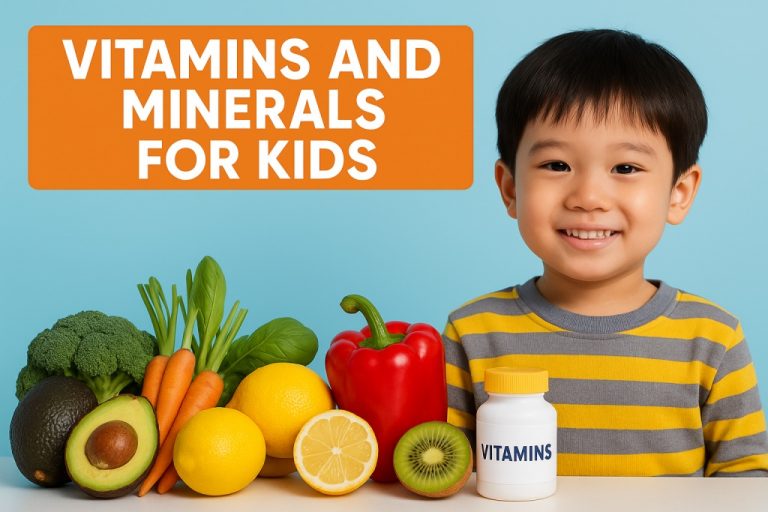
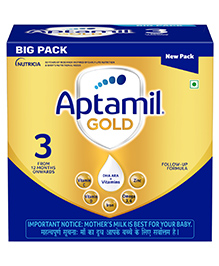
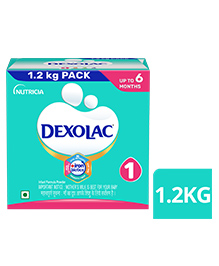
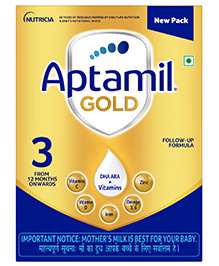
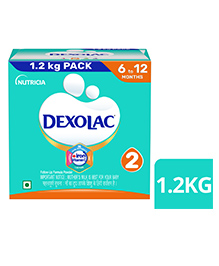
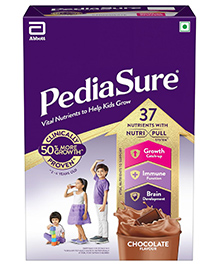
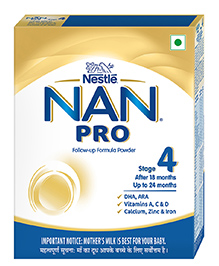
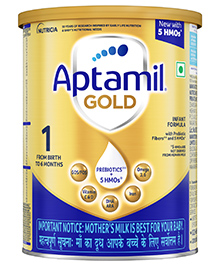
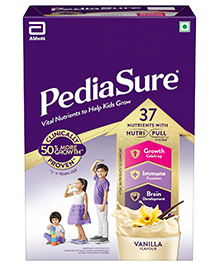








.svg)









